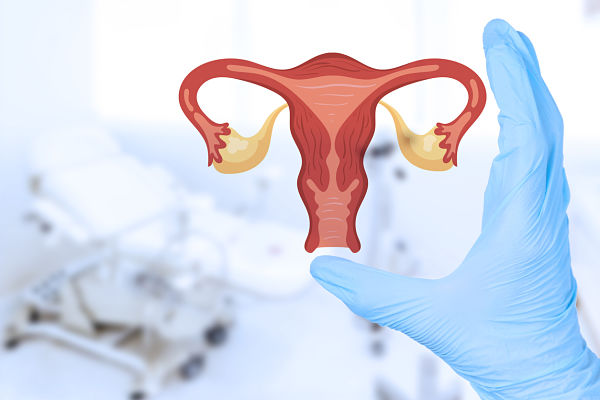PCOS medications and what they do

Although there’s no cure for polycystic ovary syndrome (PCOS), there are a number of medications which help manage your symptoms, increase fertility and reduce your risk of long-term health problems like diabetes and heart disease.
Because treatment is highly individual and not straightforward you may be treated by your GP, by an endocrinologist or by a fertility specialist.
Contraceptive Medication
Contraceptive pills are prescribed in order to induce a more regular monthly cycle. This is important to minimise the risk of developing endometrial cancer (cancer of the womb lining) which is linked to irregular periods.
There are several alternatives available:
Combination pills contain synthetic oestrogen and progestogen and can also lessen abnormal bleeding, facial hair and acne – your doctor will help determine whether you need a high or low dose formulation. These can be taken orally, as a patch or as a vaginal ring.
Some women are sensitive to synthetic oestrogen and for this reason are advised to take the mini pill which only contains progesterone. These will thin the lining of the womb (which lowers the risk of endometrial cancer) but will not tackle the high level of androgens which are responsible for your other symptoms.
An alternative to oral progestin only tablets in an IUS – (Intrauterine system) which is a T shaped piece of plastic that actively releases progesterone for between 3 and 5 years.
Metformin
Designed to control blood sugar in people with diabetes, Metformin is used to lower insulin and blood sugar levels caused by the insulin resistance which is present in many women with PCOS.
If you have prediabetes it may also slow the progression to type 2 diabetes.
Metformin is additionally used “off label” to encourage fertility; control the PCOS symptoms of hair growth and acne; lower high cholesterol and reduce the possibility of miscarriage.
“Off label” means that the Prescriber is intending to use a medication for a purpose other than that originally intended. However, they must still follow professional advice such as the General Medical Council’s Good Practice Guide. It has been used in this way for nearly 30 years.
If your specialist suggests a prescription of Metformin but you don’t wish to increase your fertility you are advised to discuss why it is being recommended. The National Institute for Health and Care Excellence has some suggested questions for you here as well as more detailed information about the pros and cons of taking Metformin.
If you are happy to take Metformin but are sexually active and don’t wish to become pregnant, you should ensure that you are using suitable contraception.
Anti-androgens
The male sex hormones – testosterone and dihydrotestosterone are known as androgens. Anti-androgens, therefore, are so called because they block androgen receptors which means they limit their effect on the body.
This is important for women with PCOS because excess androgens cause irregular or absent periods, lowered fertility, facial hair growth and an increased risk of insulin resistance and heart problems.
Fertility treatment
If you have a BMI of over 30 you will be advised to lose weight to increase the success rate of fertility treatment.
If a woman with PCOS is trying to get pregnant she is normally first prescribed Clomiphene Citrate (brand name Clomid) This tricks the body into “thinking” that its oestrogen levels are lower than they are which in turn makes it secrete hormones which encourage the release of an egg and the process of ovulation. This is known as “ovulation induction”.
It is a 5-day course taken in the early days of a menstrual cycle – usually from Days 3 to 5.
- About 75% of non-ovulating women on Clomiphene Citrate will usually ovulate within about 8 to 10 days of completing the course although some will be as late as 14 days post treatment.
- If a woman does not ovulate on the starting dose of 50g, it is usually doubled to 100g and if that is still unsuccessful it is sometimes taken up to 150g. However, it must be said that the greatest chance of getting pregnant is at the lowest dose
- Some 10% to 15% of those ovulating (and with a normal sperm count in their partner) will become pregnant. This percentage can be increased by additionally taking Metformin
For women under 38 three to six cycles are usually tried. After this age women are recommended to go under the care of a fertility specialist rather than a gynaecologist and over 40 Clomid is unlikely to be used at all
No more than 6 cycles of Clomid will be given to anyone as it increases your risk of ovarian cancer.
If Clomid alone or Clomid with Metformin is unsuccessful there are other avenues to pursue under the care of a specialist.
- Injectable Gonadotropins whereby daily shots of the pituitary hormone FSH are given for one to two weeks to stimulate mature follicle development
- IVF Treatment - most successful under the age of 40
- Letrozole - this is an off-label treatment using a drug actually designed to treat breast caner which is hormone receptor positive
I hope this has been helpful.
Although every effort is made to ensure that all health advice on this website is accurate and up to date it is for information purposes and should not replace a visit to your doctor or health care professional.
As the advice is general in nature rather than specific to individuals Dr Vanderpump cannot accept any liability for actions arising from its use nor can he be held responsible for the content of any pages referenced by an external link










